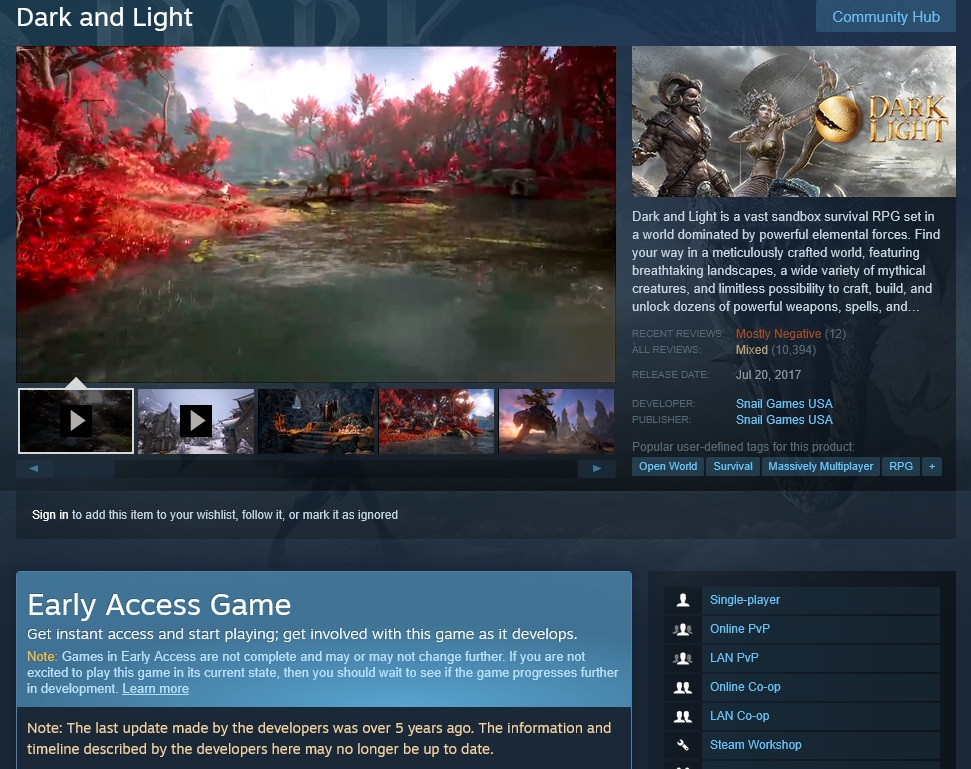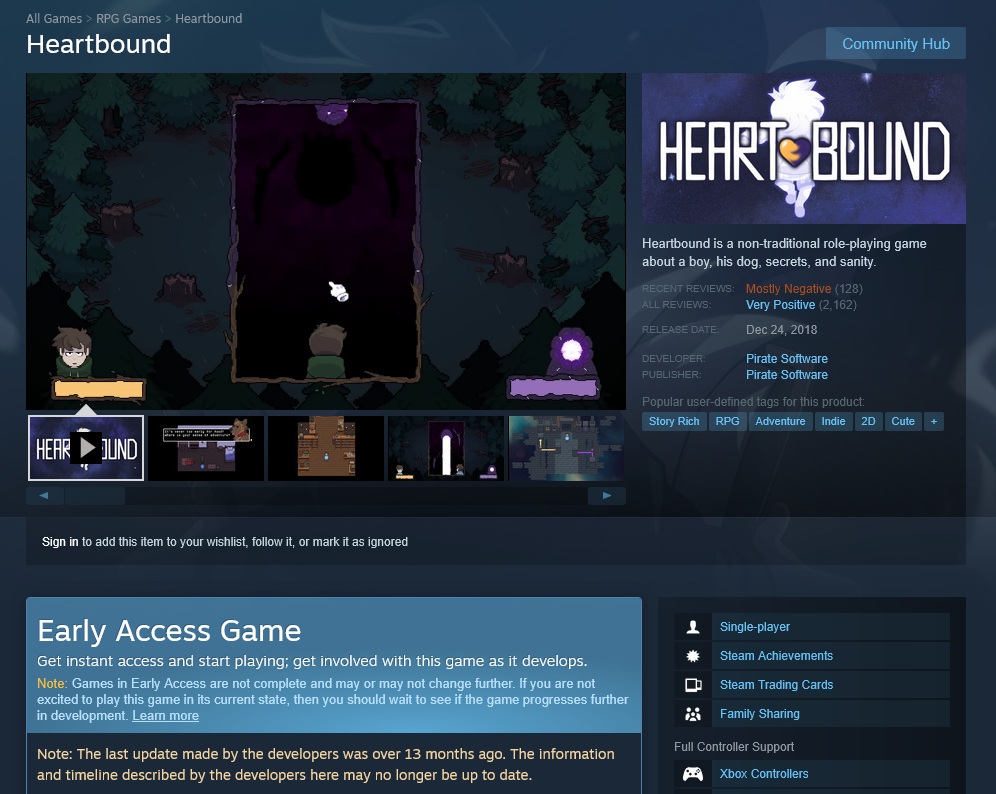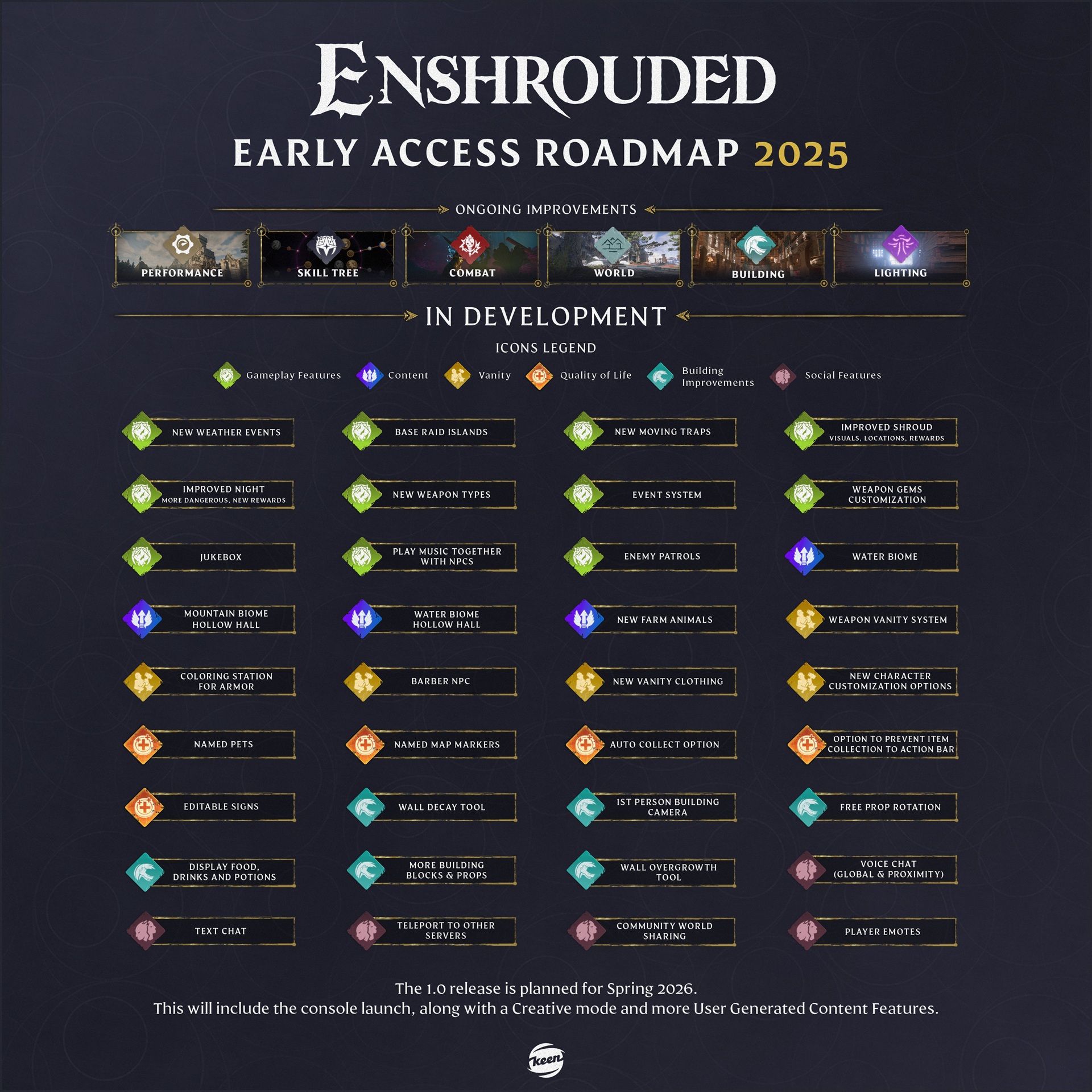Steam recently introduced a new feature that alerts players when a game in Early Access has gone more than a year without an update. It’s a solid first step toward helping consumers spot abandoned projects and make informed decisions. But let’s be real. It doesn’t go far enough.

Early Access has turned into a loophole that lets developers, both indie and big-name studios, sell unfinished games indefinitely. Some games, like Project Zomboid, have been in Early Access for over a decade but continue receiving updates. Others, like Atlas, stop updating entirely yet remain on sale. There’s no accountability, and that’s a problem.
The Problem: No Expiration Date for Early Access Games
Right now, developers can keep their games in Early Access forever. No deadlines, no guarantees, no refunds after a certain point. If a game has no estimated completion date, is it even a product or just an endless promise?

A few key changes could fix this:
- A Mandatory Release Date Window: Developers should be required to provide an estimated release date. If delays happen, they should update their roadmap and give a valid reason.
- Stricter Rules Against Indefinite Early Access: A game should have a set development window, say five years max, unless the developer applies for an extension with proof of continued work.
- No Private or Off-Platform Updates: Developers shouldn’t be able to claim progress through private builds. Updates need to be visible to players.
- Defining ‘Substantial Updates’: Steam should clarify what counts as a real update. A minor bug fix shouldn’t reset the clock.
- Delist Abandoned Games: If a game stops receiving updates for years, it shouldn’t be up for sale. Dark & Light, for example, hasn’t been updated in five years, and the game’s website doesn’t even work. Would it even run on a modern PC? It should be delisted.
- Extended Refund Policies: Right now, Steam’s refund window is short. If a game dies years later, too bad. Refunds for Early Access games should account for long-term development failures.
- Milestone-Based Funding: Instead of handing over money upfront, players could pay as developers hit certain goals. If the game stalls, so does the cash flow.
- Better Consumer Feedback Loops: Allowing players to rate a game’s progress could help future buyers avoid wasting money on stagnant projects.
And here’s a big one: Studios with multiple abandoned Early Access games should be banned from launching new ones. Snail Games USA, for example, has left Atlas, Dark & Light, and Outlaws of the Old West in Early Access purgatory. How do they get to keep selling unfinished games when they can’t finish the ones they already started?
Developer Accountability and Transparency
Delays happen. That’s life. But there’s a difference between legitimate setbacks and dragging a game along for years with no clear plan. Developers should be required to communicate delays, update roadmaps, and show actual progress. Otherwise, it’s just an endless cycle of “We’re working on it!” while players are left holding the bag.
The AAA and Indie Problem: Different Approaches, Same Issue

AAA publishers and indie devs abuse Early Access in different ways, but the result is the same—unfinished games with no clear path forward.
- AAA Publishers & Monetization Without Delivery: Some big studios treat Early Access as a cash grab. Take Atlas, which launched in 2018 and hasn’t been updated since May 2023. Its servers even went offline last year, yet Steam still sells it. How is that allowed?
- Indie Developers & Lack of Planning: Many indie developers start in Early Access with good intentions but have no timeline. Heartbound is a perfect example. When asked when the game will be finished, the developer dodges the question and points to private updates. Updates that Steam doesn’t even recognize. No roadmap, no real timeline. That’s not a development plan.
A Good Example: Enshrouded’s Clear Roadmap

Not every Early Access game is a disaster. Some developers actually get it right.
Take Enshrouded, which launched in Early Access in January 2024. Instead of leaving players guessing, the developers released a roadmap outlining planned updates and set a goal for a full 1.0 release in Spring 2026. That’s transparency. That’s accountability. That’s how Early Access should work.
Final Thoughts
Steam’s new warning about long-dormant Early Access games is a step in the right direction. But without actual consumer protections, such as stricter deadlines, refund extensions, and bans on repeat offenders, it’s just a band-aid on a much bigger issue.
Early Access should be a tool for finishing games, not a business model for selling them unfinished indefinitely. Until Steam enforces real rules, consumers will keep getting burned.






